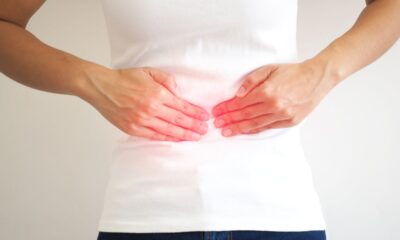Health
What is the circadian rhythm: from cycles to disorders that can cause its irregularity

What is the circadian rhythm? Let's see how it works and why the regularity of this biological clock is essential for the body.
The regularity of the circadian rhythm is of fundamental importance for the psycho-physical well-being of each individual. According to this biological clock, the 24 hours that make up the days are regulated by light and temperature, but influenced by various external factors. When the cycles begin to not be respected, disorders of various kinds arise.
Circadian rhythm: what is it and how does it work?
Considered a kind of biological clock , the circadian rhythm revolves around the 24 hours that make up a day. Term coined by Franz Halberg , circadian has a literal meaning already indicative in itself, that is around the day . Therefore, the circadian cycle sees the human being perform actions and rituals that, in a more or less equal way, are repeated daily.
The rhythms , however, are regulated by multiple factors and based on external stimuli. Let's think, for example, of sleep. The latter is regulated by light and temperature , but can also be influenced by problems related to stress. According to the circadian clock, each day is divided into three-hour cycles, which correspond to certain times and see the body perform different actions:
- 6: 00/8: 59 hours : in this fraction of time, the body gradually prepares to get going. The production of melatonin, or the hormone that regulates sleep, gradually decreases and cortisol levels increase;
- 9: 00/11: 59 : Cortisol reaches its peak, which is why the concentration level is at its maximum, as is the body. Therefore, during this time it is recommended to perform the most demanding tasks of the day;
- 12: 00/14: 59 : due to digestion, severe drowsiness is felt. In this phase it is recommended to avoid alcohol and take a little rest or a walk to digest;
- 15: 00/17: 59 : this cycle is perfect for dedicating oneself to physical activity, without affecting the night's rest;
- 18: 00/20: 59 : in this period of time you must have dinner, but always without excess. On the contrary, a drink is allowed because the liver tolerates it well;
- 21: 00/23: 59 : melatonin resumes its production and body temperature begins to drop. It is advisable to avoid sports and the use of electronic devices, getting comfortably in bed, perhaps in the company of a good book.
- 0: 00/5: 59 : it is the last cycle, so the only thing to do is to go to bed and surrender to the arms of Morpheus.
View this post on Instagram
What are circadian rhythm disorders?
A correct nictemeral rhythm allows you to control: physical, mental and behavioral changes, nutrition, blood pressure, heart rate, body temperature, hair growth and the production of numerous hormones and neurotransmitters. Therefore, circadian rhythm disorders can be diverse, span multiple 'fields' and only last 24 hours or more. Below, the most common ones:
- delayed sleep phase disorder (DSP or delayed sleep phase syndrome): going to sleep and waking up late;
- advanced sleep phase disorder (ASP or early sleep phase syndrome): common especially in the elderly. You go to sleep and you always wake up early;
- irregular sleep-wake rhythm: irregular sleep cycle, often accompanied by several daytime naps. It is generally linked to sleep deprivation and insomnia;
- unsynchronized type: not very common, it is characterized by a chaotic sleep-wake rhythm that is constant in length, but exceeding 24 hours;
- shift work disorder (shift worker syndrome): caused by the profession, can lead to insomnia , excessive daytime sleepiness and difficulty in recovering a normal circadian sleep rhythm;
- jet lag syndrome: caused by traveling with more than two time zones.
Riproduzione riservata © - WT


 (@nicolaausili)
(@nicolaausili)








